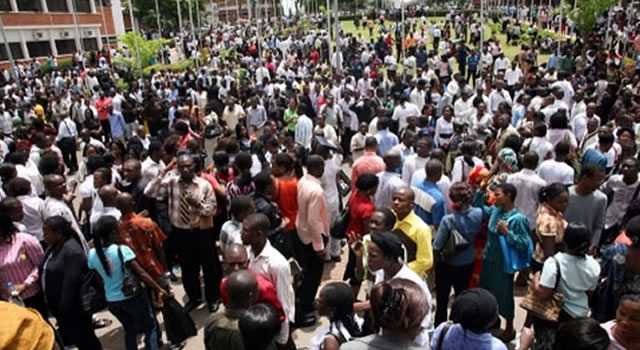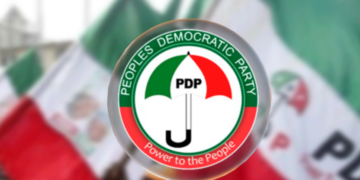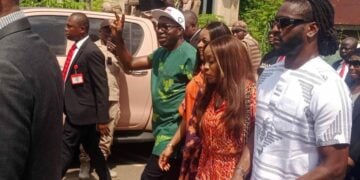As 2027 draws close a civil society organisation, We The People (WTP), is pushing for youths participation in the general elections.
This the body is doing through engagements and workshops with youths across the various states through the #IncludeNaija project.
At a community youth engagement on Governance and Human Right under the #IncludeNaija Project in Port Harcourt, Rivers State, yesterday, WTP executive director, Ken Henshaw, mentioned that the project aims to build resilience among youths on the need for them to actively participate in Nigeria’s electoral space, especially during the 2027 general elections, and to hold Democratic institutions accountable.
“Our idea in this project is to ensure that young people realize the power they have. They often forget they have the power in numbers, the power in their strength, their resilience, their ability.
#IncludeNaija aims at building or reminding them of that power and giving them the skills it takes to act based on that power. As we go into 2027, we are telling the youths, participate, demand, act, you will demand inclusion,” Henshaw said.
He stated that participants were drawn from over 20 different communities cutting across four different local government areas, including Obio-Akpor, Port Harcourt City, Okrika, amongst others.
“It is an advocacy program that aims at doing two things. Number one, ensuring that young people can fully participate in a meaningful way in the politics of their country and their states.
“The idea is to engage young people and make them active in terms of contesting election, in terms of voting, in terms of even holding their political leaders accountable. The second thing this project aims to do is to ensure that the rights of young people are protected at all times.
“This project aims to also give young people the skills and the tools to hold law enforcement officers especially police accountable and to protect the democratic rights of human beings. The idea is that young people can no longer be stigmatized because they have a tattoo or they have a laptop or they look handsome or they keep a dreadlock. Those are no crimes.
“Having a mobile phone worth a million naira is not a crime, but right now in Nigeria it is a crime. It’s this reason that the police can arrest and detain you because you are rich, you have branded a fraudster immediately.
“While we understand that there are young people who are fraudsters, that does not mean that every young person is a fraudster and that also does not mean that you can go up about arresting, detaining and intimidating people without recourse to due process of the law.
“That’s what this project aims to do, bringing these communities together because we understand that these young people are the primary targets and they lack capacity to advocate for themselves,” Henshaw said.
The WTP executive director regretted that the two major political parties in Nigeria, the Peoples Democratic Party (PDP) and the All Progressives Congress, APC), have not encouraged youth participation in elections because of exorbitant prices of nomination forms.
“2027 is by the corner. While young people in this country have the highest number of votes they are never represented in politics. Look at Nigeria there’s no young person currently in a position of leadership as it relates the 36 state governors but youths were 37 million voters in the last elections.
“How can you take up the nomination forms for various political offices in the country up to 100 million. How long will it take for a 26, 27, or 30 year old person to muster that amount of money and be able to risk it to contest an election. So we are simply saying that the cost of nomination from the political parties currently, the major political party, I speak about the APC, the PDP are not in tandem with the policy of engaging and promoting youth participation.
“It’s difficult for a young man or a young woman without the background, the financial family background or who has not participated in theft or fraud to buy those nomination forms.
“So essentially those forms are a barriers to the participation of young people and it limits the capacity of young people to participate and so if a party wants to lay close to being youth friendly the first step is to ensure that the cost of nomination from are reduced in such a way that incentivizes young people.
“The criteria cannot just be, can you afford nomination form. There should be other criteria; have you held governance position in any other place, how did you perform in that government. Aptitude test that aim at testing your knowledge and your integrity.
“You have politicians who are scoring F9 in WAEC who cannot prove their educational qualification in election, but you have young people who have got multiple degrees and have shown resilience and ability in different regards not able to even contest the selection and we are saying that any society or political party that does that, it’s a misnomer,” he stated.
Earlier, John Atsu, a rights activist, informed that the #IncludeNaija Project is a three-year civil society initiative in Nigeria, co-funded by the European Union and Rosa Luxemburg Stiftung (RLS), that focuses on addressing issues such as systemic exclusion of youth in governance, environmental justice for communities affected by resource extraction, and accountability for state and corporate abuses, through workshops, conferences, and advocacy efforts in Nigeria.





